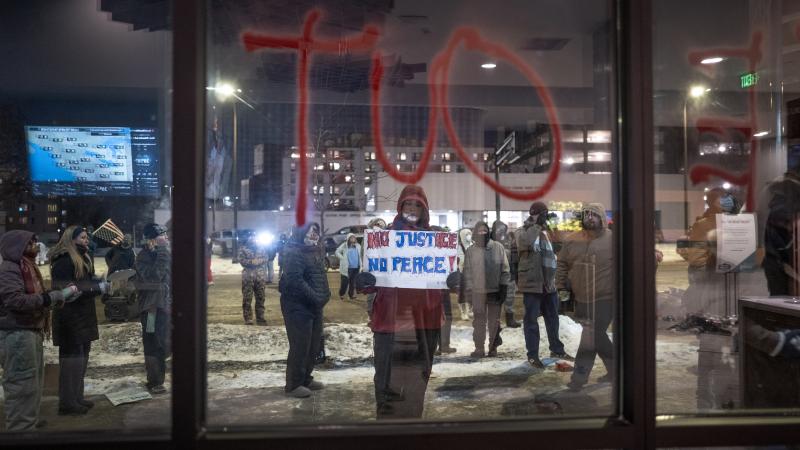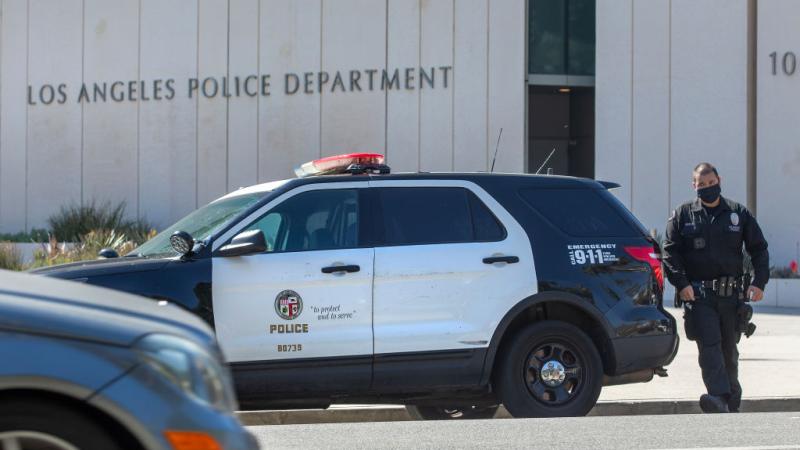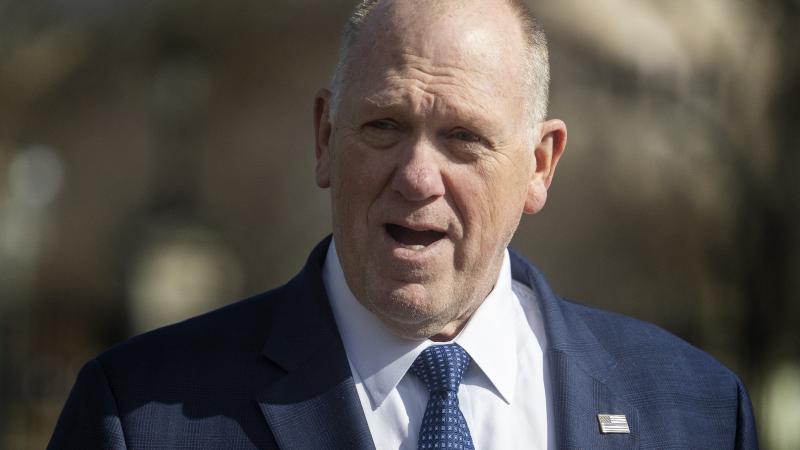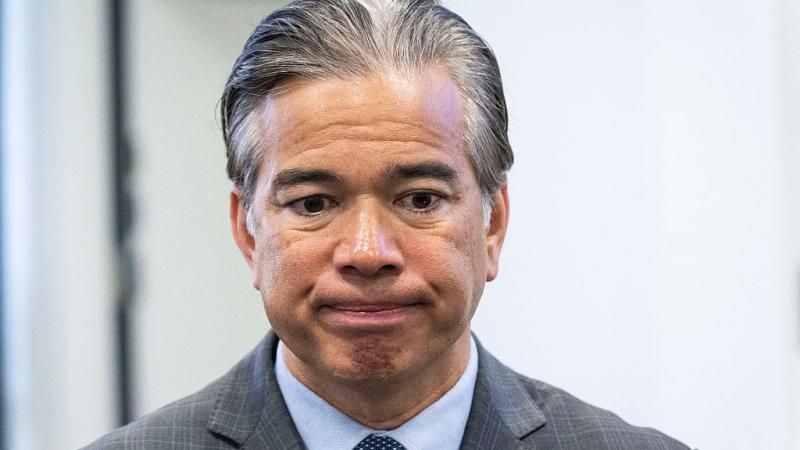Evidence builds that DC crime stats were manipulated, as Trump calls for investigation
An old lawsuit resurfaces that may introduce evidence that the Washington, D.C. police department manipulated crime statistics for years.
Just weeks before President Donald Trump announced a federal takeover of the Washington, D.C. police, the Metropolitan Police Department quietly settled a retaliation lawsuit from a whistleblower who alleged the crime statistics were manipulated.
The lawsuit, which has been part of public court records for years, has garnered renewed attention as part of a growing body of evidence that the city of Washington, D.C. may have a more widespread crime problem than official statistics would suggest.
The president’s political opponents and city leadership cited those official numbers, which show an approximately 30% decline in violent crime since 2023, as evidence that the federal takeover was unnecessary. However, both the whistleblower lawsuit and the ongoing disciplinary proceedings of a suspended captain accused of manipulating statistics have called those numbers into question.
President Trump accused the city of providing false crime statistics to improve its image and to give a “false illusion of safety.” He also seemed to confirm that the Metropolitan Police Department and city government will be investigated over the allegations.
"D.C. gave Fake Crime numbers in order to create a false illusion of safety. This is a very bad and dangerous thing to do, and they are under serious investigation for so doing!” Trump posted on Truth Social on Monday.
Whistleblower filed suit
The Justice Department had “no comment” on whether it is pursuing any investigations into the allegations, a spokeswoman told Just the News when asked whether the agency is probing MPD or the city.
Sergeant Charlotte Djossou, a 20-year veteran of the Metropolitan Police Department, filed a lawsuit against the department and the city in 2020, alleging she was subject to retaliation from leadership after blowing the whistle on several department policies.
According to her official complaint, the army veteran and police sergeant filed reports for years about practices at the department from 2014 to the time of her lawsuit, including allegations of improper—and possibly unconstitutional—searches, racial targeting, and improper reclassification of crimes to improve performance metrics.
Djossou asserted that senior officers often manipulated crime statistics in their own districts because improving performance on the metrics is directly linked to promotion potential and suggested the issue was widespread in the department.
“MPD has a long history of trying to distort crime statistics in Washington, D.C., including downgrading felonies to misdemeanors,” Sergeant Djossou, claimed in her October 2020 complaint.
Responding to directives from senior leadership “to show the largest reduction in crime statistics,” Djossou says “MPD improperly reduced crime statistics by downgrading a number of felonies to misdemeanors, so that there will be "fewer" felonies in the statistics.”
This happened for one reason, the sergeant claimed. “The promotions of MPD captains and commanders are tied to the size of the reduction in crime statistics in their districts.”
You can read Djossou’s 2020 complaint below:
Characterizing felonies as misdemeanors
In mid-2019, Sergeant Djossou first observed MPD officers classifying felony thefts as misdemeanors. Despite express directives from higher authorities earlier that year that any theft involving stolen goods valued more than $25 should be classified as felonies, Djossou said captains and officers downgraded felony thefts that could not be solved as misdemeanors.
“The result is that felony thefts were now being recorded as misdemeanors, solely because the theft could not be solved, regardless of the dollar value of what was stolen,” Djossou’s lawsuit reads.
Djossou brought her observations to a commander, which resulted in the reversal of over 100 misclassifications back to felonies. The sergeant alleges that she faced retaliation for her disclosures soon after by means of a poor performance evaluation, the court documents show.
Later that year, Djossou raised concerns to an MPD captain that a domestic violence incident had been downgraded by a fellow officer despite the seriousness of the allegations.
Djossou responded to an incident involving an attempted assault with a dangerous weapon, an attempted knife attack, as part of the domestic violence incident. The lieutenant on scene had “downgraded” the felony charge to a misdemeanor, the lawsuit recounts. Djossou, who interviewed the complainant in the case, “realized that the severity of the crime made it an unambiguous felony, not a misdemeanor.” Yet, when Djossou notified a police captain about the incident, he failed to take any action.
Strangulation, knife attack no big deal
A transcript of the phone call between Djossou and the captain—Sean Conboy—shows that when the sergeant attempted to notify the captain of what she alleged was an improper downgrading of charges, he dismissed the complaints.
“Ok, so the complainant stated that she got into a physical altercation with her boyfriend. He strangled her, he ended up throwing her over the couch. She had scratches on her neck, her shirt was ripped, and then he threw a knife in her direction close to her head, she moved out of the way,” Djossou told the captain, according to a copy of the phone call transcript first obtained by the Washington Free Beacon.
“And what was the classification that was decided on the scene?” Captain Conboy asked.
“They decided, the Watch Commander decided to go with Simple Assault. That's incorrect,” Djossou replied. She further explained that the involvement of a knife would elevate any charges to assault with a dangerous weapon.
The captain argued that because no injury resulted from the knife attack, that the chosen classification was warranted.
“Ok. So she was not harmed in any way by the knife?” the captain asked. After confirming that, he ultimately said he had no problem with the classification.
However, D.C. code states unambiguously that a felony assault with a dangerous weapon “is not classified by the resultant injuries and does not require injury as a result of the assault.” In fact, the code says that it “is any type of assault in which the offender uses a dangerous weapon, whether it is used to affect the assault or handled with reckless disregard for the safety of others.”
The Washington, D.C. Metropolitan Police Department did not respond to a request for comment from Just the News about Djossou’s lawsuit and the settlement.
John Lott, former President of the Crime Prevention Research Center and Trump Justice Department official, said that the misclassification of crimes does more than just reduce transparency, but has detrimental effects on how resources are distributed to combat crime.
Misclassification “affects how the resources for police are going to be distributed,” Lott told the John Solomon Reports podcast on Monday. “They make it harder for them to get funds, but they also may affect how they're going to allocate funds.”
Further evidence continues to emerge that the misclassification of serious crimes is a widespread and ongoing issue in the capital’s police department.
In May, police commander Michael Pulliam was placed on administrative leave while under investigation for manipulation of crime data, law enforcement sources told local news outlet NBC 4 Washington. The commander’s suspension came just weeks after he filed an equal employment opportunity complaint against a senior police leader. Pulliam has denied the allegations.
Police union: "Deliberately done"
The Fraternal Order of Police, the union that represents MPD officers, said that the incidents are not isolated. Crime data manipulation is widespread in the department, directed by leadership to improve the numbers, the union claims.
“What we've heard through our members and through members of management that were willing to talk with the union is that this is a directive from the command staff, is that they want to make sure that these classifications of these reports are adjusted over time to make sure that the overall crime stats stay down,” FOP Chairman Gregg Pemberton told NBC 4 Washington. “And this is deliberately done.”
The union leader specifically identified the downgrading of assault with a dangerous weapon cases as a way to avoid the FBI detecting them in its regular reporting on violent crime in American jurisdictions.














